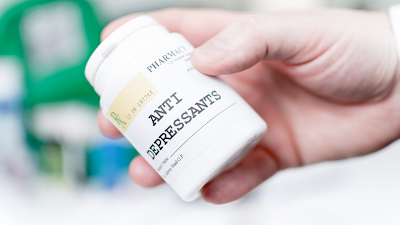Featured
- Get link
- X
- Other Apps
What is the best kind of depression medication?
 |
| What is the best kind of depression medication? |
There is no one "best" kind of depression medication, as the best option for any individual will vary depending on their specific symptoms and medical history.
However, some most commonly prescribed medications include selective serotonin reuptake inhibitors (SSRIs), tricyclics, and monoamine oxidase inhibitors (MAOIs).
What is the best kind of depression medication?
Different Types of Depression: What are the symptoms?
Depression is a mental illness that affects nearly 20 million people in the United States.
It's characterized by a feeling of sadness, loneliness, and hopelessness, which can interfere with daily life. The different types of depression are based on the causes and symptoms of the illness.
Different Types of Depression: How do they work?
Different Types of Depression:
- Major Depressive Disorder (MDD): The most common type of depression is a persistently low mood that affects all areas of life.
- Bipolar Disorder: A condition in which people have episodes of highs (manic episodes) and lows (depressive episodes).
- Seasonal Affective Disorder: A type of depression caused by changes in the brain's natural chemical production in the fall and winter months.
- Postpartum Depression: A condition that can affect women after they give birth. It's most common within the first six months postpartum but can last up to 12 months.
- Attention Deficit Hyperactivity Disorder (ADHD): A mental health disorder typically involves difficulties with concentration, hyperactivity, and impulsiveness.
Different Types of Depression: Which antidepressants are best for which type of depression?
Depression is a mental disorder that affects millions of people worldwide. It can be classified into three types: unipolar, bipolar I, and bipolar II.
The most commonly prescribed antidepressants are SSRIs (selective serotonin reuptake inhibitors). However, different antidepressants are better suited for different types of depression.
Unipolar depression is usually treated with an antidepressant called bupropion. Bupropion relieves sadness, gloominess, loss of interest in activities, and lack of energy.
It is also considered a good antidepressant for treating bipolar disorder because it does not cause weight gain or sexual dysfunction.
Bipolar I depression is best treated with an antidepressant called lithium. Lithium helps to stabilize moods by restoring the balance of neurotransmitters in the brain.
Side Effects of Antidepressants: What to watch for and how to manage them
Depression is a severe mental illness that affects millions of people around the world.
It can be highly disabling and difficult to treat, which is why antidepressant medications are essential. But like any medication, antidepressants can have side effects.
Here are some things to watch for and how to manage them:
1. Side effects can vary from person to person and may not appear right away.
They may take several weeks or months to develop and can include:
- Nausea
- Vomiting
- Diarrhea
- Stomach cramps
- Sweating
- Sleeping problems
- Tremors or shaking of the hands or feet
- Anxiety or panic attacks
If you experience any of these side effects, please talk to your doctor as soon as possible.
Conclusion
In conclusion, there is no one "best" kind of depression medication. What works for one person may not work for another, and each person's needs will vary.
If you are considering medication for your depression, it is essential to speak with your doctor about what might be the best option for you.
- Get link
- X
- Other Apps
Popular Posts
How do I stop being drained by energy vampires?
- Get link
- X
- Other Apps

.png)
Comments
Post a Comment